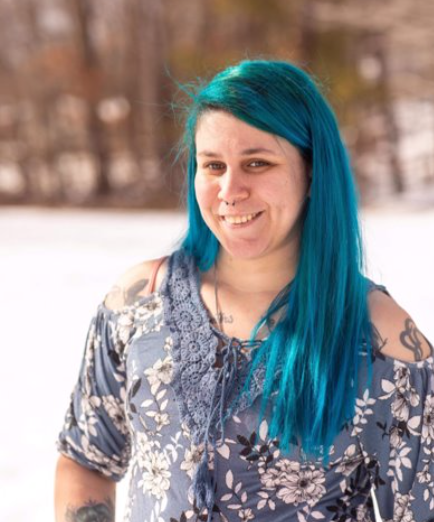Everywhere I turn, I hear more and more about the negative consequences of the overturning of Roe v. Wade. Whether hearing about sexual and reproductive health care being denied to those in need or hearing of unfortunate harm caused due to oppressive laws that don’t allow people to exercise autonomy over their bodies. These struggles are even more challenging for young people in foster care.
As I reflect on my time as a young person in foster care, I recall on various occasions being told what I was and was not allowed to do when it came to my sexual and reproductive health. I did not have access to the information, support, and resources I needed to make informed decisions about my life. The article “For Foster Youth, New Restrictions Make Abortion Access Even More Difficult” by Houreidja Tall, highlights how difficult it already was for young people in foster care to access sexual and reproductive health services before the supreme court decision. What is even more alarming is that when the article was published in January 2023, 36 states required parental involvement in the decision for a young person to have an abortion. What happens to young people who don’t have contact with a parent? Or those who may not have a positive relationship with a parent? As highlighted in the article, in certain jurisdictions, young people in care must obtain a judge’s permission for an abortion. Requiring young people in care to speak before a judge to make a case to access sexual and reproductive services can be triggering for young people in care, further compounding the stressors and traumas that they experience AND removes young people’s ability to have autonomy over their bodies and their lives.
Sexual and Reproductive health is about many things, including building healthy relationships, gender-affirming care, sexuality, safe sexual practices, and more. Unfortunately, some states do not provide comprehensive sexual education in schools, and outside of schools, young people may not have supportive adults they can go to for support and guidance on these very important topics. Additionally, there are systematic issues that create barriers for specific groups. An article by the Center for the Study of Social Policy (CSSP) states, “But the destruction of Roe isn’t simply an issue of gender and reproductive rights—it is also one of equity and race. Because of how racism has shaped public policies and systems, Black, Latinx, Indigenous, and other people of color—as well as non-binary and transgender people who have historically been oppressed, marginalized, and surveilled by systems—will undoubtedly be most impacted and harmed by the reversal of Roe.” When we look specifically at foster care, we also know that Black, Latinx, and Indigenous youth are disproportionately represented, adding that the lack of laws that protect their sexual and reproductive rights and inequitable access to services which continues to create barriers for them to make informed decisions about their lives, succeed and thrive.
Fear and misinformation have spread across our nation. Things are changing rapidly; young people seeking services and people providing services are not always clear on what is allowed. This impacts what information is being shared or not shared. Young parent leaders across the country are taking action in various ways to address the attacks on their bodily autonomy and sexual reproductive health rights. I am one of those young parent leaders that is a part of the CSSP’s Youth Power, Parent Power initiative. I am working with a team of other young parent leaders and staff members to develop a limited podcast series for young people in care and those who have recently transitioned out, and those who support them in addressing these very urgent and important issues. The young parent leaders and I are utilizing our personal experiences to think through barriers we faced in accessing sexual and reproductive health information and resources to put forth recommendations for how young people can better be supported in this area. We will also host focus groups to hear directly from young people and those who support them about their experiences and recommendations.
Now, you may wonder, “This is great information, Blanca! How can we help?” I would love to share some ideas with you. Please email YPPPinfo@cssp.org and
- Share resources that may be helpful to review while developing the podcast series content.
- Connect us with people and organizations to gain diverse perspectives on this issue.
- Help us spread the word and join one of our upcoming focus groups.
Blanca Goetz is an advocate from Rhode Island and holds a dual role as a young parent leader and faculty member for the national Youth Power, Parent Power team. The Youth Power, Parent Power initiative partners with expectant and parenting youth to transform standards of care across public systems and communities so that they can succeed and thrive.
